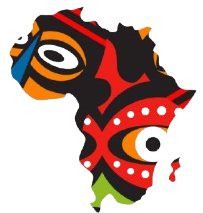CareersWhat is the cultural significance of African masks?
African masks hold deep cultural and spiritual significance across the continent. They are used in ceremonies, rituals, and performances to represent ancestors, deities, or spirits. Many masks serve as a bridge between the physical and spiritual worlds, allowing wearers to embody supernatural beings or channel ancestral wisdom.What are the different types of African antique art?
African antique art is incredibly diverse, reflecting the continent’s rich cultural heritage. Here are some of the main types:
- Sculptures – Often made from wood, bronze, or terracotta, sculptures depict ancestors, deities, and royalty. The Benin Bronzes and Nok terracottas are famous examples.
- Masks – Used in rituals and ceremonies, masks represent spirits, animals, or mythical beings. They are crafted from wood, metal, or fabric and are central to many African traditions.
- Textiles – African textiles, such as Kente cloth from Ghana and Kuba raffia cloth from the Democratic Republic of Congo, are known for their intricate patterns and symbolic meanings.
- Rock Art – Some of the earliest African artworks are prehistoric rock paintings found in the Sahara and Southern Africa, depicting animals, humans, and abstract designs.
- Jewelry and Personal Adornments – Crafted from beads, ivory, gold, and other materials, African jewelry often signifies status, wealth, or spiritual beliefs.
- Pottery – Used for both practical and ceremonial purposes, African pottery varies by region, with distinct styles in Nigeria, Mali, and Sudan.
What are some specific types of African masks?
African masks come in a variety of styles, each with unique cultural significance. Here are some notable types:
- Bamileke Masks – Originating from Cameroon, these masks are adorned with colorful beads and cowry shells, symbolizing wisdom and wealth. They are used in royal ceremonies.
- Pende Masks – Found in the Democratic Republic of Congo, these masks blend human and buffalo features and are used in rituals to communicate with spirits.
- Yohure Masks – From Côte d’Ivoire, these masks combine human and animal characteristics and are worn during dance rituals to help villagers mourn the dead.
- Kanaga Masks – Used by the Dogon people of Mali, these masks play a role in funerary rites, ensuring the safe passage of the deceased to the afterlife.
- Ngil Masks – Worn by the Fang tribe in Ghana, these masks were historically used in initiation ceremonies and to enforce justice.
- Punu Masks – Associated with the Gabon people, these white-painted masks represent ancestral spirits and are worn during celebrations.
Each mask carries deep symbolism and is crafted with intricate designs. Would you like to explore the artistic techniques behind these masks?
What do these masks symbolize in their cultures?
African masks carry profound symbolism, often representing spiritual, social, and ancestral connections. Their meanings vary across cultures, but here are some common themes:
- Spiritual Transformation – Many masks are believed to allow wearers to embody spirits or deities, facilitating communication between the physical and spiritual realms.
- Ancestral Honor – Some masks, like the Punu masks of Gabon, symbolize ancestral spirits and are worn during ceremonies to honor the dead.
- Social Hierarchy – Masks can indicate status, power, or leadership within a community. The Bamileke masks of Cameroon, adorned with beads and cowry shells, signify wisdom and royalty.
- Rituals and Initiation – Masks play a role in initiation ceremonies, marking transitions into adulthood or new social roles. The Ngil masks of the Fang people were historically used to enforce justice and guide initiates.
- Healing and Protection – Some masks are used in purification rituals, believed to ward off evil spirits or restore balance to individuals and communities.
Each mask carries unique artistic and cultural significance, reflecting the values and beliefs of the people who create and use them. Would you like to explore how these masks are crafted?
What do masks symbolize in specific cultures?
African masks hold unique meanings across different cultures, often serving as spiritual, social, and artistic symbols. Here are a few examples:
- Dogon Kanaga Masks (Mali) – Used in funerary rituals, these masks symbolize the connection between the heavens and the earth, guiding souls to the afterlife.
- Bamileke Elephant Masks (Cameroon) – Represent power and royalty, worn by high-ranking individuals during ceremonies to honor ancestors and reinforce leadership.
- Sowei Masks (Sierra Leone) – Used by the Sande Society, these masks symbolize feminine beauty, wisdom, and initiation into adulthood.
- Fang Ngil Masks (Gabon) – Historically worn by secret societies to enforce justice and maintain social order.
- Chokwe Masks (Angola, DR Congo) – Depict ancestral spirits and are used in initiation ceremonies to teach young men about their cultural heritage.
Each mask carries deep cultural significance, reflecting the values and traditions of the communities that create them. Would you like to explore how these masks are crafted?
